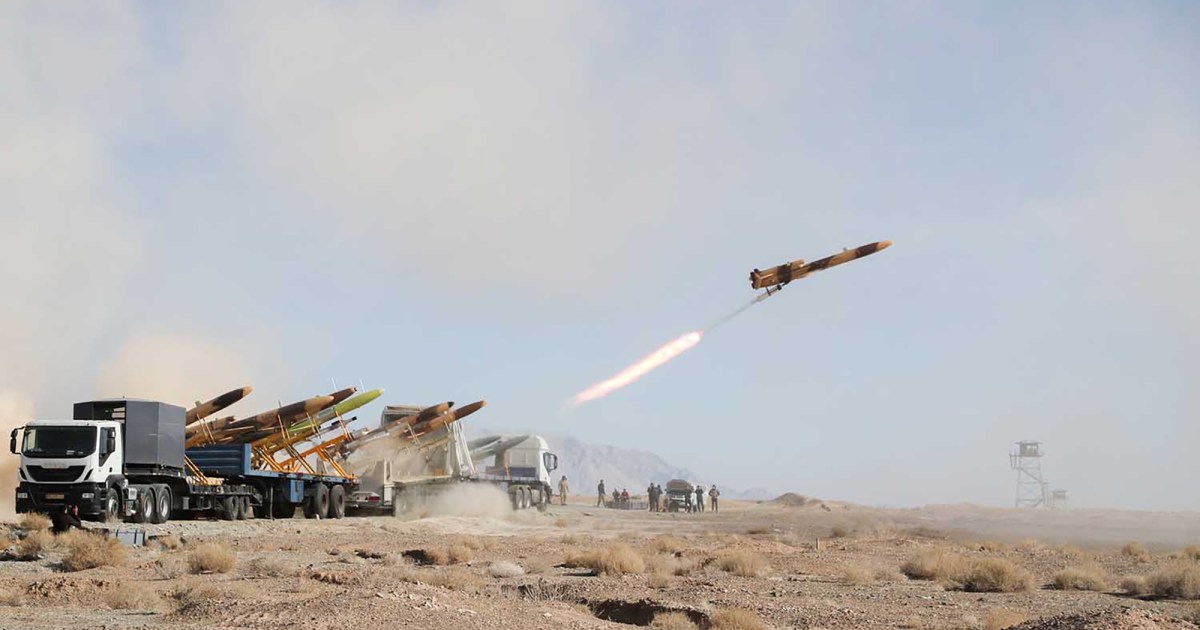An article
published by the American "National Interest" website
called on the
United States to support the Turkish-Azerbaijan-Pakistan axis as a counterweight to Iran and Russia in the South Caucasus and the Greater Middle East.
The author of the article, Taras Kozyu, professor of political science at
the National University of Kiev-Mohyla Academy in
Ukraine, said that Iran is escalating its military rhetoric against Azerbaijan and is conducting the largest military maneuvers in 3 decades on its borders with Azerbaijan, and for its part, Azerbaijan is mobilizing the patriotic spirit, which rose after the recent victory against Armenia. to confront Iran.
Kozio explained that a military conflict between Iran and Azerbaijan would lead to a regional conflagration given that Turkey had just concluded a security agreement with Azerbaijan by signing
the Shusha Declaration
last June, and Pakistan - an ally of Turkey and Azerbaijan - is also certain to increase Military pressure on the eastern border of Iran.
Meanwhile, Armenia, which was not ready to accept its defeat, might be tempted to use the preoccupation with the Azerbaijani-Iranian war to regain what nationalists call "Eastern Armenia", leading to another war on Nagorno-Karabakh.
Russia and Armenia
The writer added that the outbreak of a regional conflagration would be detrimental to Russian security policy in the South Caucasus, because it would jeopardize the so-called Russian "peacekeeping" operation in Nagorno-Karabakh, noting that the Kremlin would not be able to pretend to be neutral if its regional allies, Iran and Armenia, participated in the conflict. Military operations.
The writer pointed out that it is no coincidence that regional tensions and the risk of an Azerbaijani-Iranian war emerged after the new Iranian President Ebrahim Raisi inherited a well-established regional geopolitical system opposed to Iran.
He stated that part of this entrenched anti-Iran geopolitical formation is the pro-Western military and security group consisting of Turkey, Azerbaijan and Pakistan, pointing to the three countries' signing last July of
the Baku Declaration
, a strategic partnership for political and military cooperation between its parties.
Pakistan and India
He also noted that the Baku Declaration renewed its support for the return of the occupied lands to Azerbaijan, and expressed solidarity with Pakistan's position on the disputed regions of Jammu and Kashmir with India, adding that in early September, Turkey, Azerbaijan and Pakistan carried out a joint military exercise in Baku used by Azerbaijani military leaders To thank their ally for their support during the Nagorno-Karabakh War in 2020.
He said that Israel, which has had a security partnership with Azerbaijan since the early 21st century, belongs to this geopolitical group as well.
He explained that in the framework of the competition there is another geopolitical group consisting of Russia, Armenia and Iran, and that Armenia supported India in its territorial dispute with Pakistan.
Iran's largest military exercise
Kozio went on to say that it is not surprising that the appointment of the Iranian president Raisi deteriorated relations between the two geopolitical groups, and that the rumble of arms began immediately after he took office, as Iran conducted its largest military maneuvers in 30 years on the Azerbaijani border.
Iranian Foreign Ministry spokesman Saeed Khatibzadeh said that Iran "will not tolerate the presence of the Zionist entity near its borders, and will take the security measures it deems necessary."
5 reasons
The writer mentioned 5 reasons for the deterioration of Iran's relations with Azerbaijan, which are:
First
, the security partnership between Azerbaijan and Israel, as the writer said that although the security partnership of Shiite Azerbaijan with Israel is unusual and unique, Baku, in turn, indicated that Shiite Iran’s cooperation with Christian Armenia, “which occupied Azerbaijani lands, also contradicts the solidarity of Islamic world".
Second
, Iran's unwillingness to accept a secular Shiite state (Azerbaijan) that it sees as belonging to its traditional sphere of influence.
Modern and secular Azerbaijan also provides support to the Iranian opposition by showing it an alternative path.
Thus, Azerbaijan's example of disaffected Iranians resembles the role that democratic Ukraine plays in Russian opposition to the regime of Russian President Vladimir Putin.
Third
, Iran's fears of the secession of the Azerbaijani minority within it, which represents more than a quarter of its population, as this minority supported Baku in the Nagorno-Karabakh war in 2020, a position that completely contradicts Tehran's support for Armenia.
Fourth
, the growing Turkish influence in Azerbaijan.
In the past three decades, Azerbaijan's economy and energy infrastructure have been extensively developed, making it the dominant state in the three South Caucasus states, a development that Iran does not like.
Fifthly
, Iran’s frustration with the outcome of the 2020 war, which, after the return of the occupied territories to Azerbaijan, reduced the Iranian-Armenian border to less than 50 kilometers, and this provides Azerbaijan with a highly effective strangulation of Iranian road supplies to the separatist Armenian minority in Nagorno-Karabakh.

